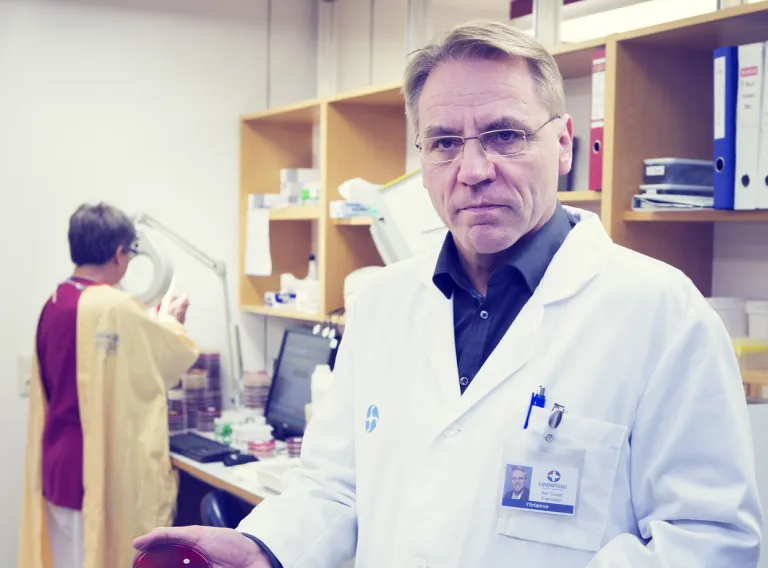
Most people try to avoid pathogens as much as possible, since they generally cause health problems and even serious epidemics. History shows us this very plainly. The obvious example to demonstrate how serious infectious diseases can be is the COVID-19 pandemic currently raging.
Karl Gústaf Kristinsson, professor at the University of Iceland Faculty of Medicine, is a little different from most other people when it comes to pathogens. He is in fact fascinated by some of them, not least pneumococcus and streptococcus as well as E. coli. Karl Gústaf heads the Department of Clinical Microbiology at Landspítali University Hospital and is therefore primarily interested in resolving the health problems caused by pathogens, both bacteria and viruses.
Karl Gústaf's diverse research is focused in particular on the spread of and risk factors for antibiotic resistance, which is a growing problem now threatening public health. Karl Gústaf has also researched the impact of vaccinations on pathogens, both bacteria and viruses.
Multiresistant bacteria threaten public health
In his recent research, Karl Gústaf has looked for Enterobasterales bacteria in vegetables on the Icelandic market, especially Escherichia coli or E. coli, which has often been discussed in the media. He wants to investigate the sensitivity of these bacteria to antibiotics and see whether there is a difference between the bacteria living in domestically grown and imported vegetables. To achieve this, he is sequencing the DNA from the E. coli bacteria he finds and comparing them with strains cultivated from urinary tract infections in humans.
The inspiration for the research is the aforementioned threat posed to humans by growing antibiotic resistance. Also, it is not known to what extent multiresistant bacteria come from animals, food products and the environment. Karl Gústaf says that information about how multiresistant bacteria are transmitted to humans is extremely important, so that we can implement appropriate interventions to slow the spread of multiresistant bacteria. "The circumstances here in Iceland are ideal for such a study."



